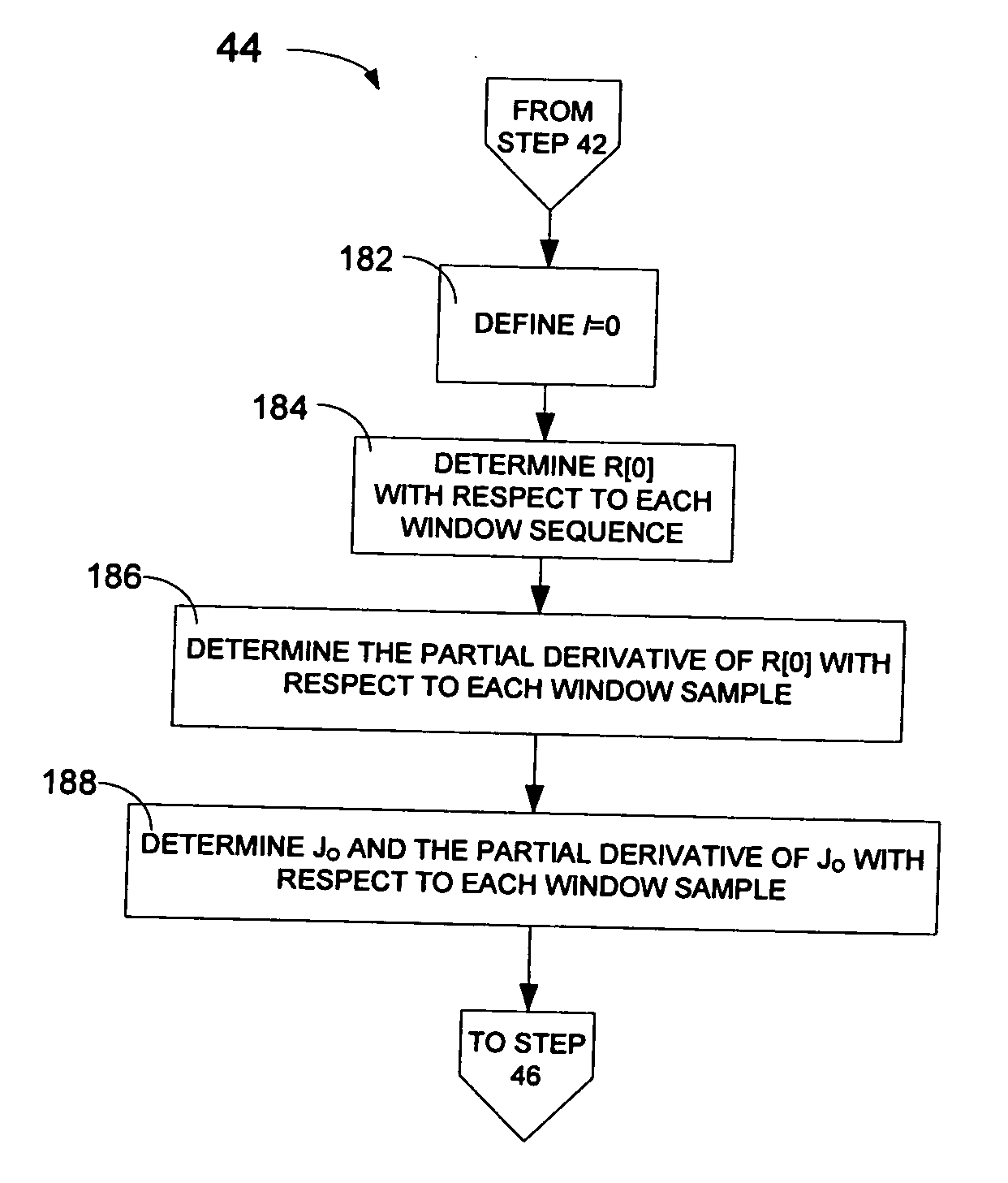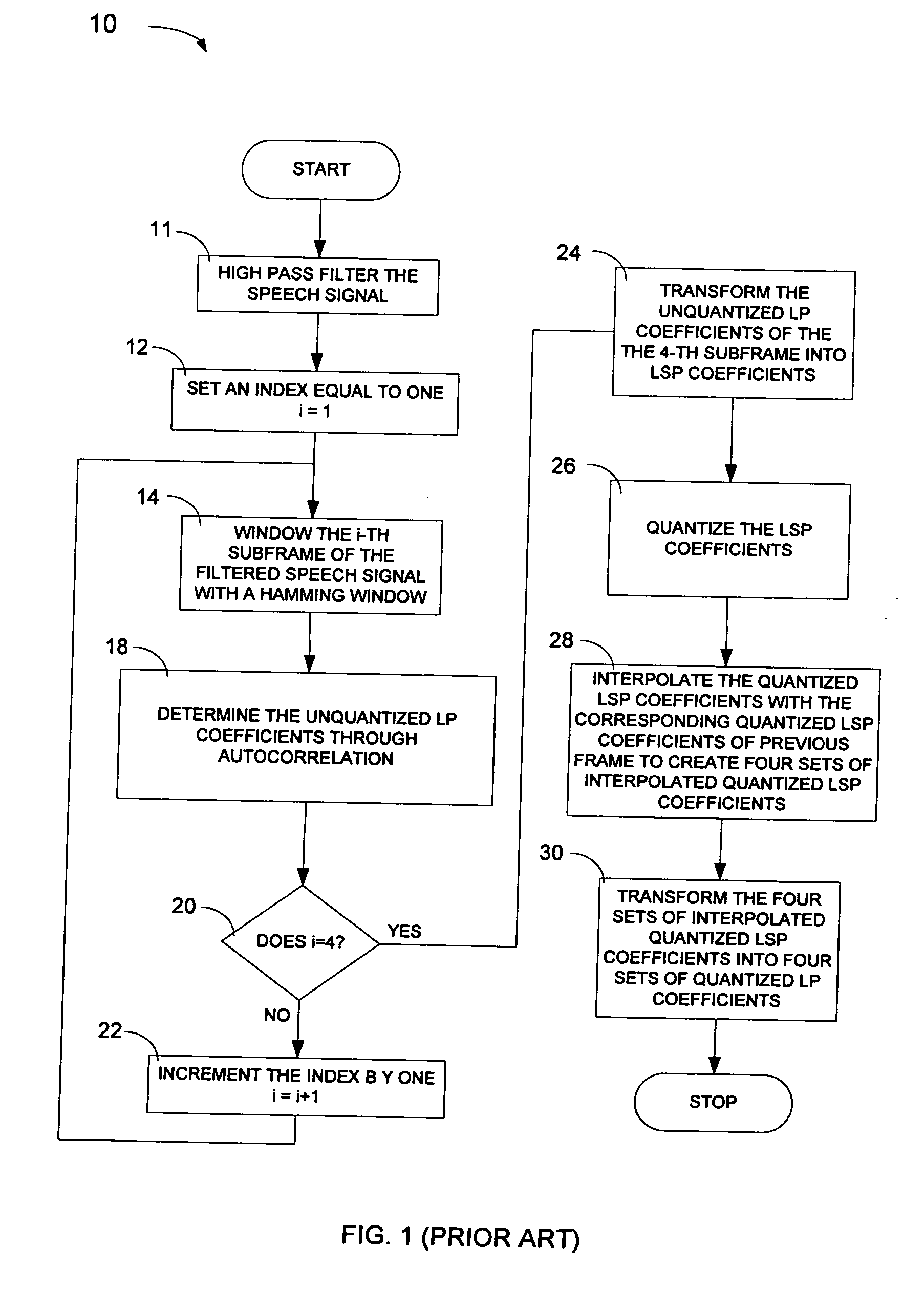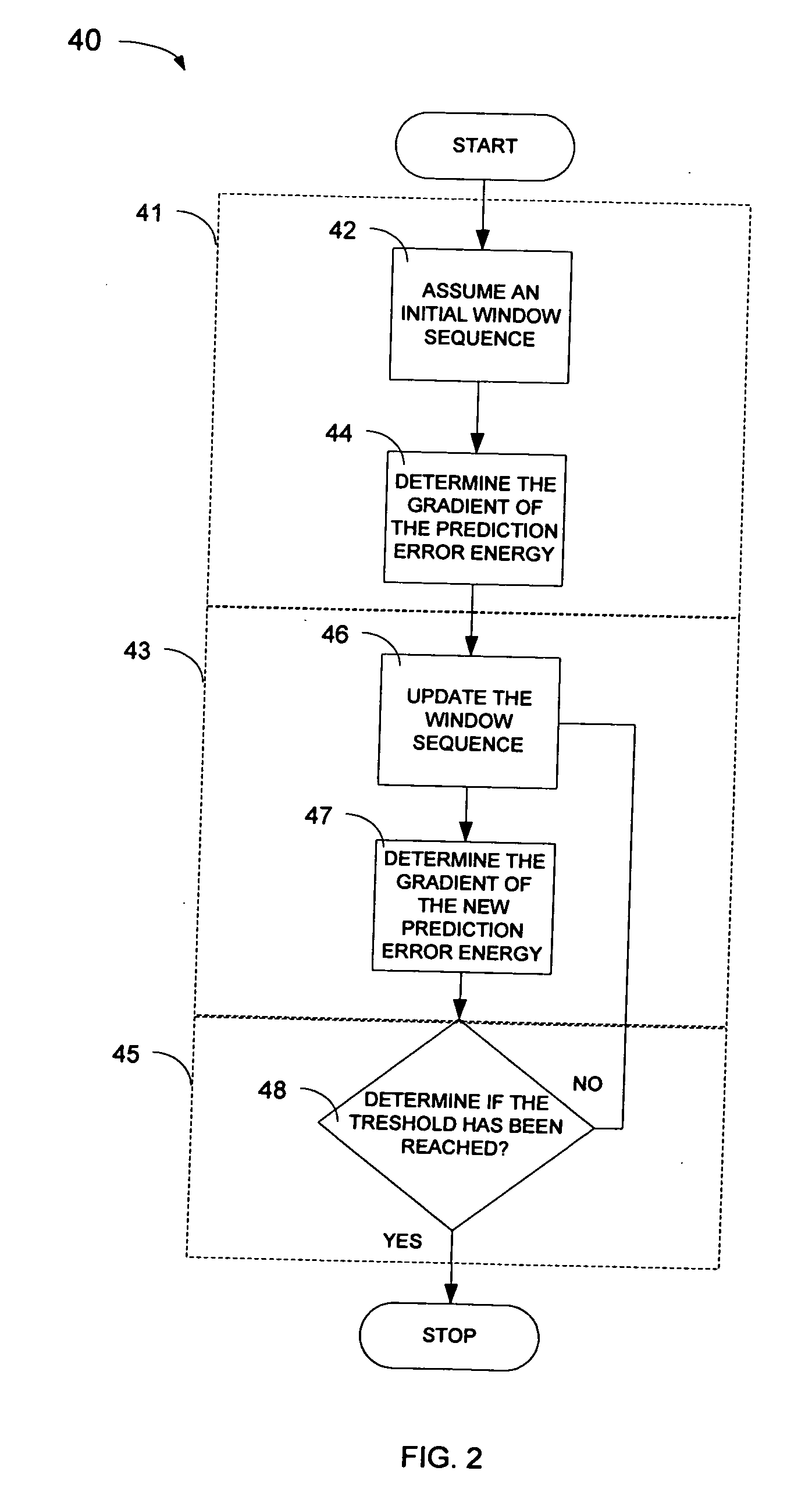Optimized windows and methods therefore for gradient-descent based window optimization for linear prediction analysis in the ITU-T G.723.1 speech coding standard
- Summary
- Abstract
- Description
- Claims
- Application Information
AI Technical Summary
Benefits of technology
Problems solved by technology
Method used
Image
Examples
Embodiment Construction
[0052] The shape of the window used during LPA can be optimized through the use of window optimization procedures which rely on gradient-descent based methods (“gradient-descent based window optimization procedures” or hereinafter “optimization procedures”). Window optimization may be achieved fairly precisely through the use of a primary optimization procedure, or less precisely through the use of an alternate optimization procedure. The primary optimization and the alternate optimization procedures are both based on finding the window sequence that will either minimize the prediction error energy (“PEEN”) or maximize the prediction gain (“PG”). Additionally, although both the primary optimization procedure and the alternate optimization procedure involve determining a gradient, the primary optimization procedure uses a Levinson-Durbin based algorithm to determine the gradient while the alternate optimization procedure uses the basic definition of a partial derivative to estimate t...
PUM
 Login to View More
Login to View More Abstract
Description
Claims
Application Information
 Login to View More
Login to View More - R&D
- Intellectual Property
- Life Sciences
- Materials
- Tech Scout
- Unparalleled Data Quality
- Higher Quality Content
- 60% Fewer Hallucinations
Browse by: Latest US Patents, China's latest patents, Technical Efficacy Thesaurus, Application Domain, Technology Topic, Popular Technical Reports.
© 2025 PatSnap. All rights reserved.Legal|Privacy policy|Modern Slavery Act Transparency Statement|Sitemap|About US| Contact US: help@patsnap.com



